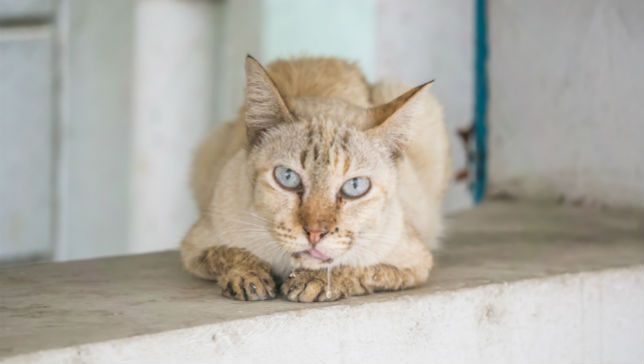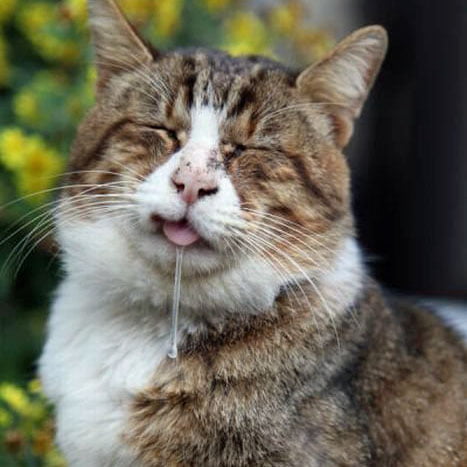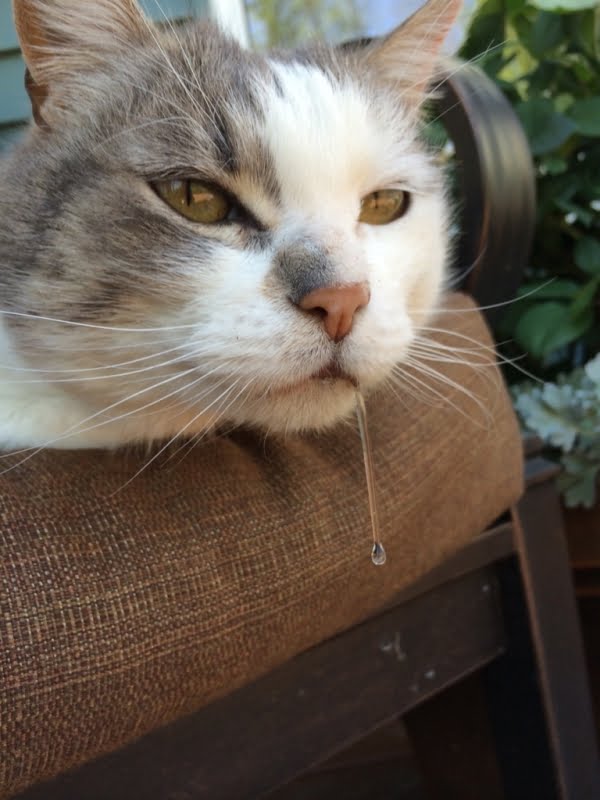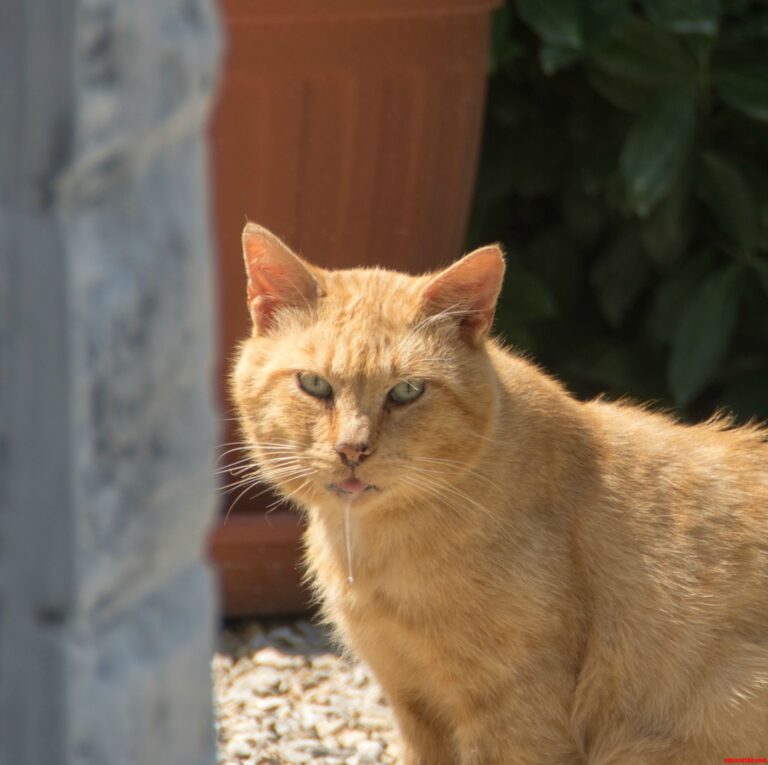Does your cat drool? Some cats never drool while others never seem to stop. What’s important is knowing when the dribble is a cause for concern.
Before further discussing this potentially unsavory topic, it is important to remember that if your cat’s drooling is unusual for any reason, e.g., they don’t normally drool, the dribble is accompanied by panting or abnormal behavior, etc., you should contact your vet immediately in order to rule out any potential medical issues. “If drooling lasts more than a few minutes or is occurring continuously or regularly, it’s definitely time for a veterinary exam,” says holistic veterinarian Dr. Judy Morgan.
Experts say many cats drool when they are relaxed and content. Cathealth.com describes the kind of slobber when your cat lets go and relaxes to the point their jaw hangs open a little as “the drool of happiness.” This means that when your cat is resting on your lap, the potential exists for the faucet to turn on. Cat experts believe that cat drooling and happiness are likely linked to the state of euphoria experienced by kittens nursing with their mothers. This is particularly evident if your cat likes to knead your lap or a blanket while drooling as kittens knead their mother’s abdomen to stimulate the flow of milk. Accordingly, your cat may be experiencing a reminder of such satisfying childhood moments while snuggling with you. Cat behavior specialist Pam Johnson-Bennett points out that cats drool when given catnip for the same happy reasons. Even the experts however, are not entirely certain why cats drool when they are happy.
What should you do to avoid the potential waterfall in your lap if your cat is a relaxed and happy drooler? Pay attention to areas on your cat’s body that tend to stimulate drooling when massaged. For example, if petting or rubbing under the chin cause your furry feline child to slobber, focus your attention elsewhere. If happy dribbling is simply a reality with your cat, then keep a washcloth or small towel close-at-hand and just let it go.
There are times however, when your cat’s drooling may not be from happiness, but a sign of a medical issue including dental disease, tooth decay, swallowing difficulty, poisoning, heat stroke, nerves, liver disease or a respiratory condition. In most cases your cat will also display other symptoms of concern. “Nausea can signal anything from a temporary tummy upset to something of more concern like inflammatory bowel disease or intestinal cancer,” say Morgan. The article “Why do cats drool?” was posted on the Mother Nature Network (MNN) on October 2, 2016.





